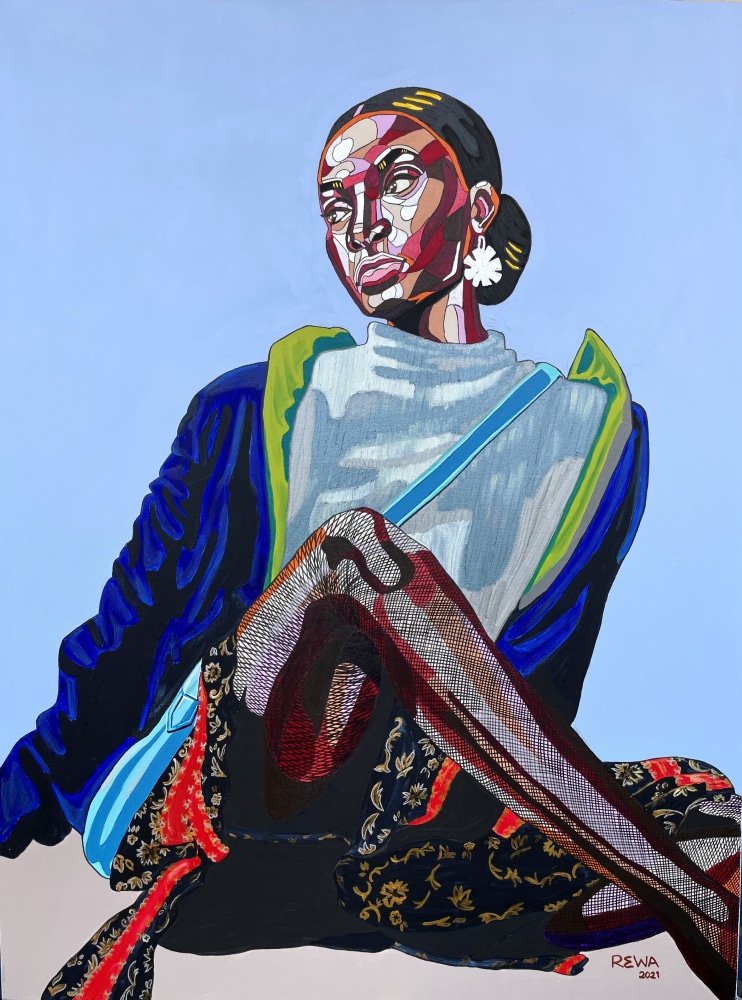
REWA
Dabeluchi in the Foreign Land, 2021
acrylic and ink on canvas
48h x 36w inches
available for purchase at JFG
email info@jonathanferraragallery.com to purchase
In this conversation with Jasmin Hernandez, the mind behind Artsy’s online show “Dress Codes: Black and Brown Women Artists Fashioning Identity,” the writer explains how style serves as a tool for the empowerment of BIPOC excellence.
Text by: Gilda Bruno
“Before we even open our mouths, our clothes speak for us,” reads the opening statement to the Jasmin Hernandez-curated online group show Dress Codes: Black and Brown Women Artists Fashioning Identity. Launched on the digital art platform Artsy on the occasion of Women’s History Month, this COVID-proof exhibition spotlights the kaleidoscopic beauty and multifaceted talent of Black and Brown female artists through a fashion-driven lens. Featured artists include photographers Ming Smith and Deana Lawson as well as painters REWA and Megan Gabrielle Harris.
“The garments we wear tell people who we are, where we live, what income bracket we belong to, and even what hobbies we enjoy,” the introduction continues. “For Black, Indigenous, and womxn of colour, our way of dressing means so much. Fashion is both our escape and our expression. Our fashion choices are in many ways our tools for daily survival and success.”
Born in Washington Heights, New York, to Dominican parents, Jasmin Hernandez is a young Black Latinx author whose career started at Vanity Fair, where she used to work as a Fashion Assistant. A graduate of Parsons School of Design, she has gone on to writing for internationally-praised publications such as Elle, Harper’s Bazaar, and The Cut, to name but a few, while also serving as Photo Editor and Producer at award-winning titles including The New York Times Magazine, New York Magazine, and The New York Post.
The founder of Gallery Gurls, a digital art hub designed to showcase the artworks of Black, Brown, and Indigenous women active in the creative scene, Hernandez does everything in her power to advocate and support her community — whether it be devouring a book written by a BIWOC* writer per week, or writing one herself (We Are Here, 2021) to honour the “visionaries of colour transforming the art world.”
Below, we talk with the Afro-Dominican American author about the personalities that inspired Dress Codes, cultural appropriation, and what she wishes people would learn from the digital exhibition.
[...]